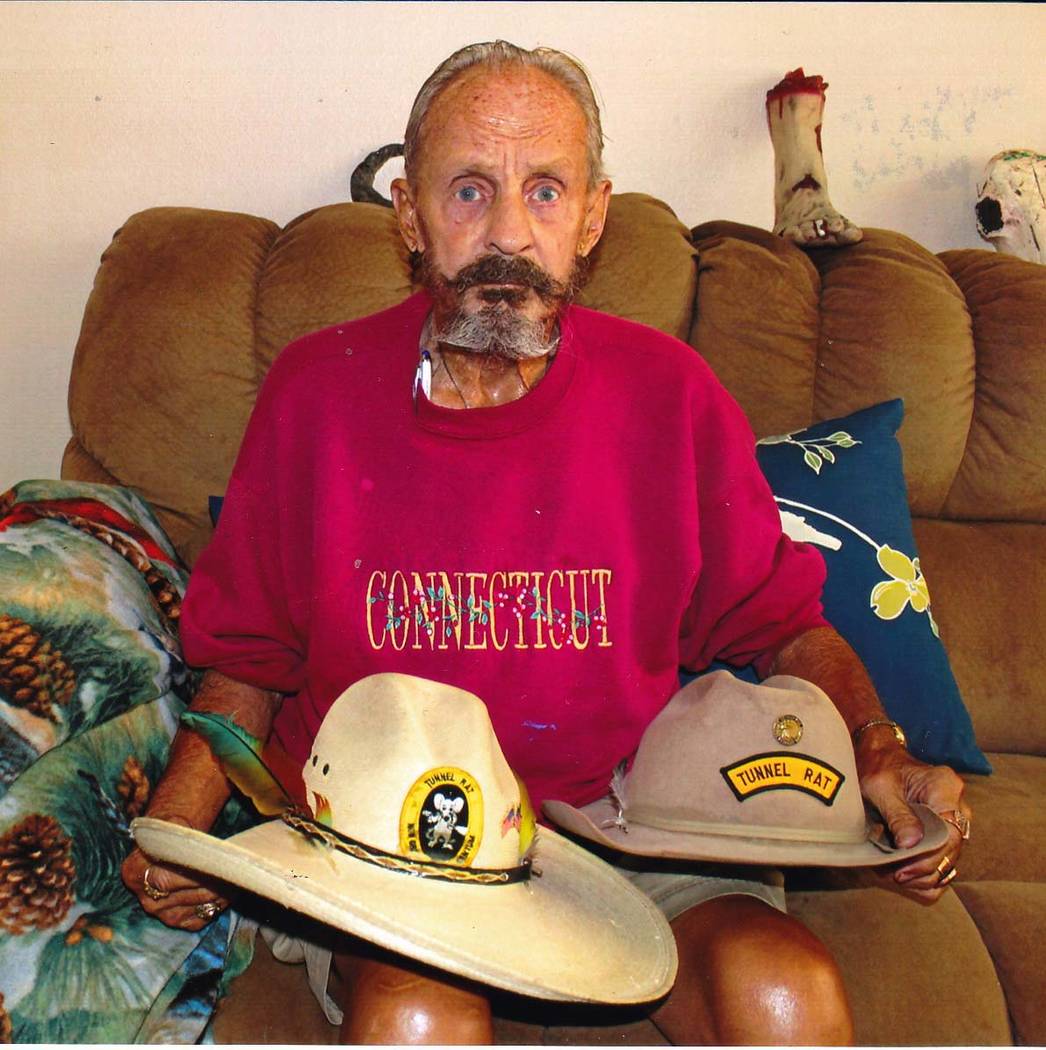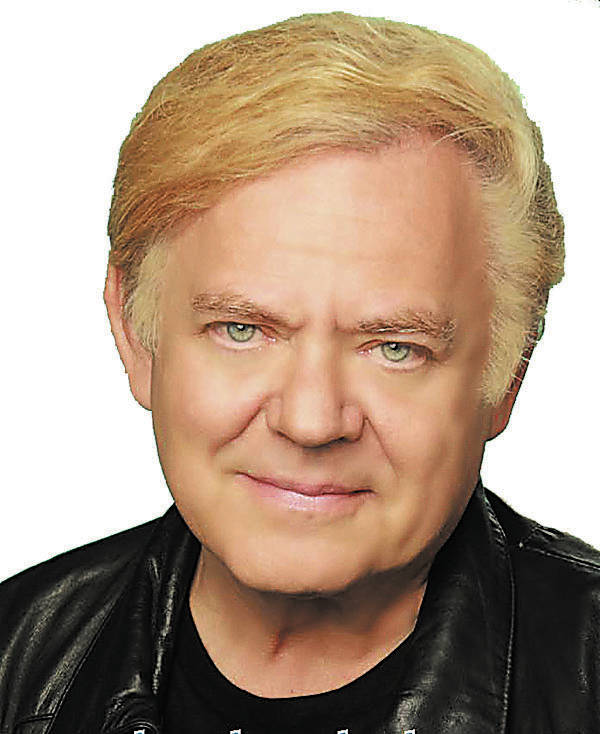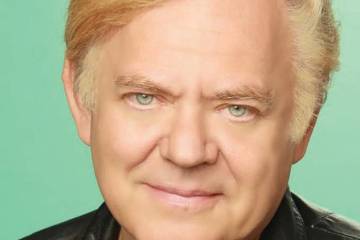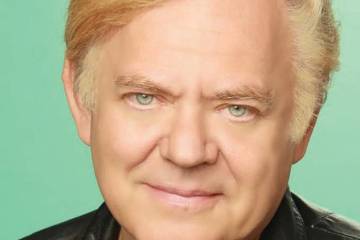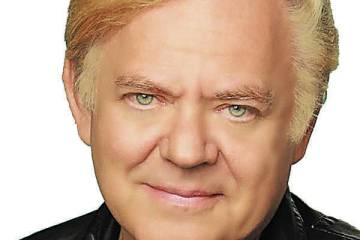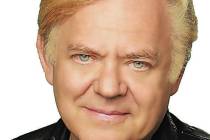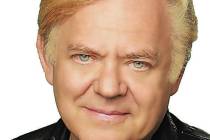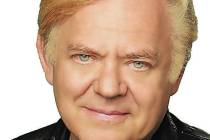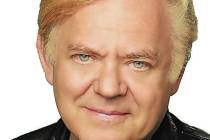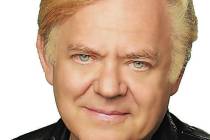Ex-Tunnel Rat appreciates ‘penthouse’ lifestyle
Boulder City is currently the home of a veteran whose name is “Fearless.” When someone’s name is “Fearless” it could either be a satirical reference, or it could mean that it’s someone who is in reality a very tough individual. In the case of Fearless Fredy King, it’s the latter definition.
King is a Vietnam veteran who served in combat as a Tunnel Rat. Tunnel Rats, for the most part, were small-framed, skinny Americans who could fit into tight holes in the soil leading to underground cities where the Viet Cong operated out of sight.
King entered the Army twice in his long life. In 1958, with the military draft creeping up behind him, he volunteered to be drafted ahead of his scheduled time.
“My draft number was coming up,” he said.
When I asked him why he joined the Army early on, he simply said, “Well, I wanted to.”
He was living in St. Paul, Minnesota, and worked as an electrician on overhead lines. When he wasn’t repairing air conditioning lines he was active as a flyweight boxer in the Midwest.
“I had 61 fights and 61 wins,” he said. “I was flyweight champion in St. Paul, Minneapolis, Chicago.”
That was Part One of being fearless.
King said he was also flyweight champion of the Army, working out of Fort Carson, Colorado. He left the service after two years and went back to being a lineman.
In 1964, with fighting in Southeast Asia making headlines, he felt a patriotic urge to join the Army again. He wanted to help the U.S. in what he initially felt was a noble cause. The second time around as a soldier, the Army didn’t require his services as a boxer.
“I went straight to Vietnam,” he said.
At first he was shuttled around various units, but always ended up underground. “Engineers, cavalry, infantry, at every unit I just got my mail. I was in the 164th Combat Engineers and later in the 1st Infantry Division. But my primary job was tunnels.”
It was while in the 1st Infantry when Gen. William Westmoreland visited his unit that King said he personally “pretty much picked me” to work in the tunnels “because I was a little, skinny guy. He knew I was in good shape.”
That’s when the Fearless name began to gain more traction.
He recalled his first time entering the tunnels. “The division knew where the tunnels were. But they didn’t know where all the (hidden auxiliary) trap doors were located. So we had to hunt for them.”
He said the enemy had rigged the tunnels and the areas around the entrances with “explosives, Bouncing Betties, trip wires” and other ordnance. “Betty” is the name given to a class of extremely lethal mines that when triggered launch into the air and detonate at about 3 feet high, decimating anyone standing nearby.
King said many of the Tunnel Rats he knew became casualties once they entered the underground lairs, which were more than just long tunnels. “I’ve seen the ventilation shafts, the hospitals, the kitchens, the medical, where they slept. They had ammo rooms set up and punji sticks with poison on the ends. It was like a city in there where they all met.”
The punji sticks were made of thin stakes of bamboo and planted in pits that were covered with foliage. When an individual stepped on the covering, he or she would fall into the pit. The stakes would enter the skin, and the poison would cause deep life-threatening infections unless quickly and properly treated. King was able to avoid such a fate.
King said when he entered the shafts he wore only a lightweight shirt, shorts, boots and a light strapped to his forehead. He often encountered the enemy.
“One time they had a female Viet Cong. She killed many, many GIs in the tunnels. I confronted her one time, and it was either her or me.”
King explained that once when he was a passenger in an Army helicopter, the pilot either passed out or was shot and was unable to operate the aircraft. King said that although he was not trained as a pilot, he had watched enough of them in action to be able to grab the controls and bring the chopper down safely. “Not too clean,” he laughed. “But safe.”
Although love of country brought him back to the Army, over time he became disillusioned with the war effort. “I thought, what’s this B.S. about? Why were we over there? It’s their country; they’re defending their country. Why are we over there invading them?”
King recalled many locations of combat, but like thousands of other American soldiers, he couldn’t be certain what happened where. “I didn’t know where I was, to tell you the truth. All I know is what I had to do, and I did it.”
He did recall being in such areas named The Iron Triangle and the Hobo Woods, and a few scattered villages. His own living quarters when he wasn’t hunting Viet Cong was a “hootch” made out of tin. He had a television, radio and refrigerator, all battery operated. “The TV used rabbit ears,” he said. All the TV shows were telecast from Saigon in the Vietnamese language, which King did not understand.
“I (lived) right there, right at the end of the bush,” he said.
In 1970, he left Vietnam and active duty, but he stayed with the National Guard until he was able to retire.
Now 80 years old, it’s been a long trail from Minnesota to a hootch in Vietnam, to Nevada. At various times he has also lived in Tonopah and Pahrump.
H
he calls Boulder City home, where he lives in a senior facility. A modest room where he keeps his belongings is a far cry from his tin shelter in the jungle. “I live in a penthouse now!” he exclaimed.
Chuck N. Baker is a Purple Heart veteran of the Vietnam War and the host of “That’s America to Me” every Sunday at 7 a.m. on 97.1-FM.

